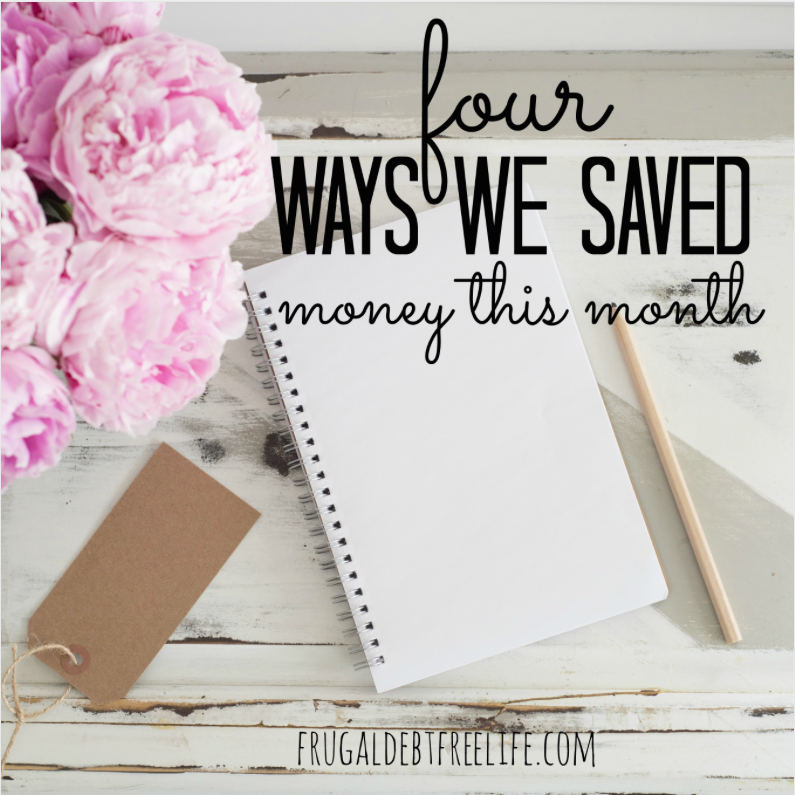5 Tips for Budgeting on an Irregular Income
/
You have heard me talk and talk and talk about the importance of a budget. But what about budgeting if you have in irregular income? This is actually a question I get a lot and I have a little bit of experience with this.
When Jason and I first started budgeting we had an irregular income because Jason worked a lot of overtime and I worked a full-time job and freelanced. Our income was a lot smaller than it is today and it was frequently irregular.
While I am not an expert in budgeting for an irregular income, I do have some experience. So I thought I would pass along some of that to you.
1. Work in reverse
If you’re working a regular income where you got paid the same amount of money every month you would start with your income. But when working with a fluctuating paycheck, you start with your expenses.
Get out a piece of notebook paper and write down ALL your expenses. Write down everything. Groceries, gas, rent/mortgage, utilities, cell phone, dog food, debt, dentist etc. etc. etc. Try not to forget anything, if you get a haircut each month, put it in there if you’re saving for new shoes, put it in there. If you get an oil change ever so many miles, put it in there.
Tally that up.
That’s the minimum amount you need to work with every month.
2. Prioritize your budget
So ideally, you would have enough money to cover ALL your expenses, put extra money toward your debt and still have some for savings. But that isn’t always a reality. Right? If you’re barely getting by and behind on your bills the firs thing you will need to do is get current. You need to do this BEFORE you build an emergency fund or start paying off debt. Just get current.
Whether you’re behind on your bills or not, will absolutely have to prioritize your spending. Start with your family’s most basic needs first. For example, food, shelter, electricity and heat and a way to get to work and school. Those are your most basic needs. Then branch out from there to include your other bills, needs and debts.
Once all of the expenses are covered you can put money into savings for your emergency fund. If your emergency fund is already in place you can put any extra money into savings.
3. Use your smallest paycheck
Look at all your paychecks over the past year. Whatever the SMALLEST number was, that’s what you need to work with. That is your worst-case scenario. If your smallest paycheck doesn’t cover all your expenses you need to look at your lifestyle and see if anything can be eliminated. Go through your bank account over the past few months to see where you have wasted any money.
4. Learn the 50/20/30 rule
This is a concept I have learned about recently and I actually like it. It really simplifies budgeting. It splits your budget into three categories.
1 Fixed costs: These are your rent, groceries, car payment and utilities. They might change a little but not a whole lot. About 50% of your monthly paycheck should cover these.
2 Goals: 20 percent of your take home pay would, under this plan, go to goals such as paying off your debt and getting your emergency fund in place.
3 Flexible spending: Under this plan about 30 percent, but no more than that, would go to flexible things like eating out, entertainment and gas. However, it is my personal opinion that if you are trying to get out of debt and build better savings habit, 30 percent of your income to flexible spending is too much. That money really could be better used paying off student loans or padding your bank account.
5. Use half payments
Half payments are amazing for so many reasons, but they are especially great for an irregular income because they help you eliminate debt faster while feeling in control of your situation. The half payment method just means that instead of making one monthly payment on a debt like your student loans or mortgage, you would make half a payment bi-monthly. Because of this, you are making 26 half payments instead of 12 regular payments. This totals out to be an extra FULL payment every year without you feel a huge pinch in your budget.
I do think it takes a little more effort to budget on an irregular income as opposed to a steady income, but it’s worth the effort to gain peace.
What about you? Do you have an irregular income? What is your strategy?
























